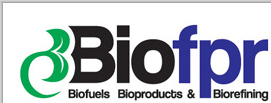Features
Import tariffs to keep EU biofuel industry 'stagnant'
Date: 2015-07-29 10:23:49.0
Author: Agrimoney.com
 EUROPE -- The bureau noted that the EU has "effectively separated itself from the international market". Anti-dumping legislation means it is rarely cost-effective to import biofuels, but EU product is rarely competitive in international markets, meaning that the EU biofuel industry only produces enough fuel to meet flat domestic demand.
EUROPE -- The bureau noted that the EU has "effectively separated itself from the international market". Anti-dumping legislation means it is rarely cost-effective to import biofuels, but EU product is rarely competitive in international markets, meaning that the EU biofuel industry only produces enough fuel to meet flat domestic demand.
Current EU biofuel use is restricted by the low rate of blending. Only 5% blends of biofuels with conventional fuels have been widely introduced, effectively capping total biofuel use. Consumers are resistant to higher blend rates, as there is not currently a strong price incentive to adopt them, and drivers are wary about the effect of biofuels of the lifespan of their engines.
The USDA notes that adoption of higher blend rates "is hampered by the low fossil fuel prices and insufficient government incentives" and notes that a liberalisation of imports would be likely to lower prices and encourage adoption. European member states have implemented legislation to force fuel suppliers to increase the rate of biofuel blending, toward a target of 20% biofuel use in road fuel by 2020.
However the so called "double counting" legislation, which means that sustainable biofuels count double toward blending targets, mean that fuel suppliers can meet these targets by changing feedstock, without increasing overall blend rate.
Currently biodiesel from used cooking oil is the most cost effective means of achieving this. The static state of biofuel blending, as well as low fuel demand from a subdued European economy, is keeping overall biofuel demand low. Total road fuel demand was seen remaining behind its 2012 high until at least 2016. 2016 fuel ethanol use was also seen at 5.25bn litres, down from 5.32bn litres in 2014, and a high of 5.70bn litres in 2011. Biodiesel use is seen falling in 2015, to 13.06bn litres, from 13.10bn litres in 2014, before recovering to 13.09bn litres in 2015.
In July German ethanol group CropEnergies warned that a recent rise in European ethanol prices may not prove sustainable. "Considerable volatility is to be expected," CropEnergies said, adding that "the high volatility of bioethanol prices makes outlook difficult". And with stagnant demand, the USDA forecasts the EU biodiesel market to remained balanced, with only enough fuel produced to meet local demand. "The supply and demand charts of bioethanol and biodiesel show a similar picture" the bureau said, noting that after a reduction of demand for fuels in 2012 and 2013, biofuels use is expected to remain "at about the current level in 2015 and 2016".
"As the ethanol market reached its limits, bioethanol production is expected to stagnate in most EU member states during 2015 and 2016" the USDA said.The USDA forecast European fuel ethanol production to remains steady at 5.25bn litres a year until at least 2016.
As biodiesel producers increasingly favour used cooking oil due to environmental incentives, the industry demand for crude rapeseed oil will drop. Rapeseed oil use in biodiesel is set to decline, to 5.97m tonnes in 2015 and 2016, from 6.17m tonnes in 2014. Palm oil use will remain fairly steady, at near 1.62m tonnes, while used cooking oil gains a growing share of the market. Conventional feedstock demand from ethanol users will remain unchanged, as cellulosic ethanol fails to gain a market share. Cellulosic ethanol is produced from non-food plant matter such as forestry offcuts and straw. The USDA estimates that in 2015 fuel ethanol production will require nearly 10.1m tonnes of cereals and 11.2m tonnes of sugar beets. "This is about 3.0% of total EU cereal production and about 8.8% of total sugar beet production," the report said.
Co-products of ethanol production, such as dried distiller's grains, can be fed to livestock. Total animal feed co-products from ethanol production are seen at 3.2m tonnes in 2014, meeting around 2% of EU animal feed demand. "Depending on the 2015 harvest, EU producers will switch to wheat or continue to produce from corn," the report said, noting that the use of beets for ethanol has "increased slightly" in the last year due to low sugar prices.
About Agrimoney.com
Agrimoney.com is investors' link to the food chain. The increasing numbers of mouths to feed, the demand for ever-more sophisticated diets, and the potential for turning food into fuel has turned the growing business into big business. Agriculture, to which financial markets owe a debt of history, is back at the forefront of investment thinking.
Our real-time coverage reveals where the money is being made - and lost. Through fast, expert reporting and commentary, we guide farmers, industrialists and investors through agriculture's new landscape.
For further information about Agrimoney.com, please visit the website here
Displaying 3 keywords used to tag this article:
- carbon capture
- patents
- enzymes
